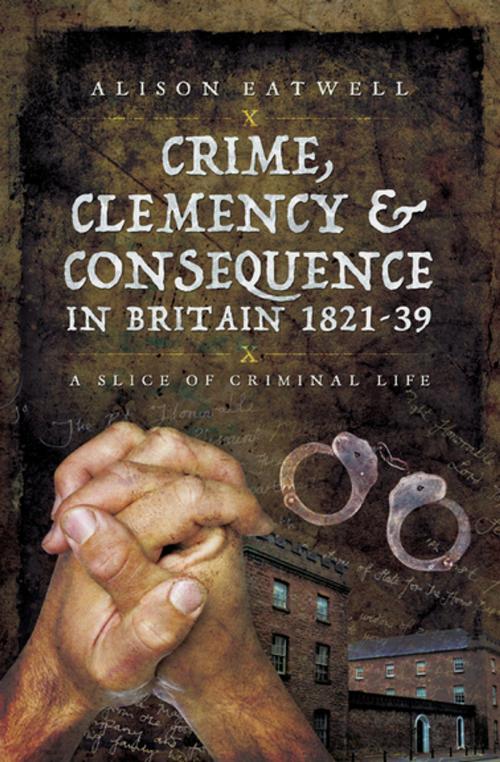Crime, Clemency & Consequence in Britain 1821–39
A Slice of Criminal Life
Nonfiction, Social & Cultural Studies, Political Science, Politics, Law Enforcement, History, British| Author: | Alison Eatwell | ISBN: | 9781473830332 |
| Publisher: | Pen & Sword Books | Publication: | September 30, 2017 |
| Imprint: | Pen & Sword History | Language: | English |
| Author: | Alison Eatwell |
| ISBN: | 9781473830332 |
| Publisher: | Pen & Sword Books |
| Publication: | September 30, 2017 |
| Imprint: | Pen & Sword History |
| Language: | English |
A history of criminal justice—from bigamy and body snatching to fraud and murder. “Offers a fascinating insight into the social conditions of the time” (Crime Review).
From the woman who steals a cloak, to the highwayman and the middle-class forger, this book allows us a glimpse of the rich mix of criminals, their crimes, and sentences in early nineteenth-century Britain.
With no statutory right of appeal against either the verdict or sentence at this time, the prisoner’s only hope for relief was to petition the Crown for mercy via the Home Office, and with sentences including death and transportation, the stakes were high. The petitioner’s objective was to prove the prisoner worthy of mercy, usually by establishing their respectability, and it is upon these petitions this book draws.
Many of the thousands of petitions, held by the National Archives in Kew, reveal fascinating incidental information about the prisoner’s personal life or circumstances that cannot be found in other records. The supporting documentation, witness depositions or character references, often give us rare details of everyday routines, working conditions, illnesses, relationships, and life in a locality.
As cases are followed in this book, some far beyond the Home Secretary’s decision, the criminals, supporters, prosecutors and judiciary are brought to life, occasionally with surprising results. Read as individual cases, each subject is fascinating; viewed together, the collection reveals a unique, intimate, and vivid insight into life in 1820s and 1830s Britain.
“Open[s] up a level of detail of the crimes committed and the life of what was often the ordinary working man and women.” —Police History Society
A history of criminal justice—from bigamy and body snatching to fraud and murder. “Offers a fascinating insight into the social conditions of the time” (Crime Review).
From the woman who steals a cloak, to the highwayman and the middle-class forger, this book allows us a glimpse of the rich mix of criminals, their crimes, and sentences in early nineteenth-century Britain.
With no statutory right of appeal against either the verdict or sentence at this time, the prisoner’s only hope for relief was to petition the Crown for mercy via the Home Office, and with sentences including death and transportation, the stakes were high. The petitioner’s objective was to prove the prisoner worthy of mercy, usually by establishing their respectability, and it is upon these petitions this book draws.
Many of the thousands of petitions, held by the National Archives in Kew, reveal fascinating incidental information about the prisoner’s personal life or circumstances that cannot be found in other records. The supporting documentation, witness depositions or character references, often give us rare details of everyday routines, working conditions, illnesses, relationships, and life in a locality.
As cases are followed in this book, some far beyond the Home Secretary’s decision, the criminals, supporters, prosecutors and judiciary are brought to life, occasionally with surprising results. Read as individual cases, each subject is fascinating; viewed together, the collection reveals a unique, intimate, and vivid insight into life in 1820s and 1830s Britain.
“Open[s] up a level of detail of the crimes committed and the life of what was often the ordinary working man and women.” —Police History Society















